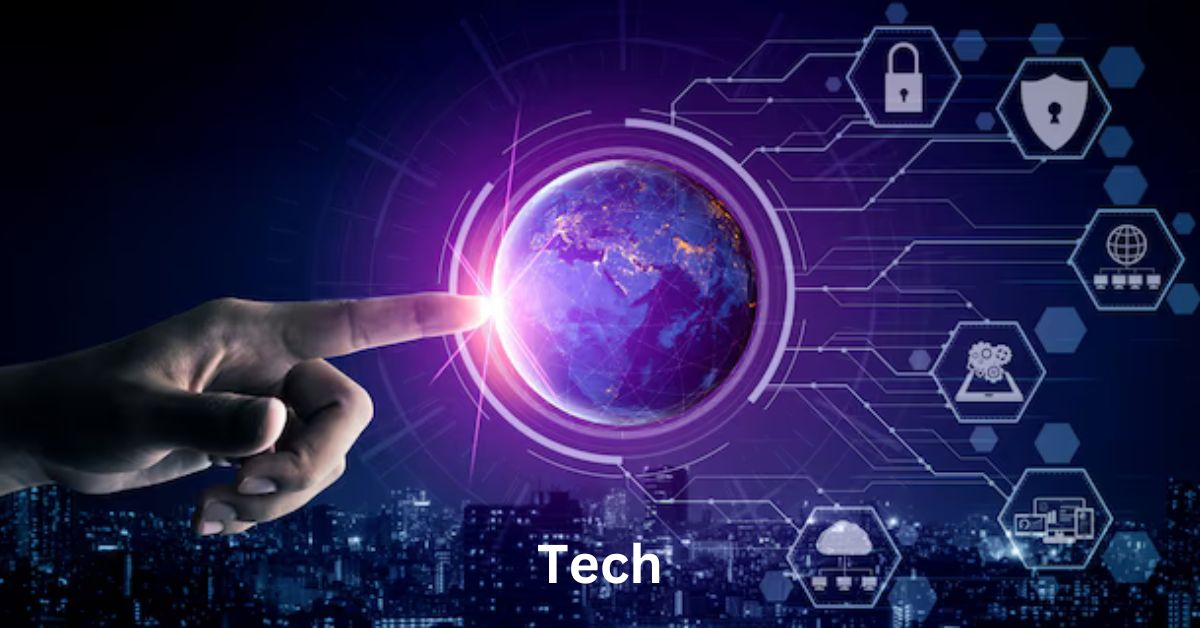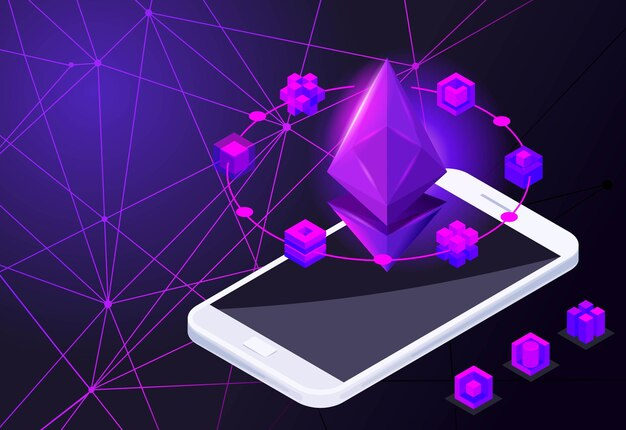The word “tech” has become an integral part of modern vocabulary, shorthand for technology. From gadgets to software systems and digital innovations, tech impacts nearly every aspect of our daily lives. But what exactly does “tech” mean, and how has it shaped the world? This article delves into the meaning of tech, its various forms, and the transformative power it holds in sectors such as communication, healthcare, business, and entertainment.
What Does “Tech” Mean?
At its core, “tech” is an abbreviation for “technology,” which refers to the application of scientific knowledge for practical purposes. Technology encompasses a broad range of tools, machines, systems, and processes designed to solve problems or enhance efficiency. The term “tech” is often used colloquially to describe innovations in electronics, computers, telecommunications, and digital media.
“Tech” can be applied to both tangible products like smartphones, laptops, and drones, as well as intangible systems such as software, artificial intelligence, and cloud computing. Essentially, any tool that makes human tasks easier or more effective can be considered a product of tech.
Forms of Technology
Technology comes in many forms, each serving specific needs in different industries and everyday life. Below are some primary categories of tech:
1. Information Technology (IT)
Information Technology, or IT, refers to the use of computers and software to manage and process information. IT is essential in various sectors, including business, healthcare, education, and government. IT systems help organizations store data, run applications, and ensure smooth communication between employees and stakeholders.
Cloud computing, cybersecurity, and software development are core aspects of IT, shaping the modern digital landscape. Companies rely on IT infrastructure to maintain competitive advantages, improve efficiency, and safeguard sensitive information.
2. Consumer Electronics
Consumer electronics include gadgets like smartphones, laptops, and wearable devices. These technologies are designed to meet the needs of the average consumer, making everyday tasks easier and more enjoyable. Smartphones, for instance, combine several tools into one—communication, navigation, entertainment, and productivity—while wearables like smartwatches track health metrics and keep users connected on the go.
The rise of mobile technology has revolutionized how people work, communicate, and access entertainment, making consumer electronics a cornerstone of daily life.
3. Medical Technology
Medical tech refers to the equipment, tools, and software used to diagnose, treat, and manage medical conditions. Innovations in medical technology have significantly improved patient care, offering new ways to detect diseases early and improve treatment outcomes. Devices like MRI machines, pacemakers, and robotic surgery systems enable healthcare professionals to provide more precise care.
In addition, health-related tech like fitness trackers and telemedicine platforms empower individuals to monitor their health and receive medical advice from home, reducing the burden on hospitals and clinics.
4. Financial Technology (FinTech)
FinTech, short for financial technology, refers to the integration of technology into financial services. This sector includes online banking, mobile payment apps, blockchain, and cryptocurrencies. FinTech has disrupted traditional banking by making financial services more accessible, transparent, and efficient for consumers.
Companies like PayPal, Venmo, and Stripe have made digital transactions seamless, while blockchain technology underpins the development of decentralized currencies like Bitcoin. As FinTech continues to grow, it’s reshaping the financial landscape and opening new opportunities for innovation.
5. Green Technology
Green tech, or environmental technology, focuses on innovations that minimize environmental impact. This includes renewable energy sources like solar panels, wind turbines, and electric vehicles. The goal of green tech is to promote sustainability and reduce dependence on fossil fuels, which contribute to climate change.
In addition to energy solutions, green tech encompasses waste management, water purification, and sustainable agriculture. Governments and organizations are investing heavily in green tech to combat global environmental challenges.
The Role of Tech in Communication
Technology has revolutionized the way humans communicate. In the past, communication was limited by geography and time; letters took days to arrive, and long-distance communication was costly and cumbersome. Today, tech allows for instant communication through various platforms, from emails and text messages to video calls and social media.
1. Social Media
Social media platforms like Facebook, Twitter, Instagram, and TikTok have created new ways for people to interact. These platforms offer real-time communication, enabling users to share ideas, photos, videos, and experiences with a global audience. Social media has transformed personal relationships, business marketing strategies, and even political movements by providing a digital space for engagement.
2. Messaging Apps
Instant messaging apps like WhatsApp, Telegram, and Slack provide fast, reliable communication across the world. These apps offer text, voice, and video communication, making it easier to stay connected with colleagues, friends, and family. Whether in business or personal life, messaging apps have made communication more efficient and accessible.
3. Video Conferencing
Video conferencing tools such as Zoom, Microsoft Teams, and Google Meet have become essential, especially in the age of remote work and virtual learning. These technologies allow users to host meetings, attend classes, or catch up with loved ones from anywhere in the world, providing an efficient alternative to in-person interactions.
Tech and Healthcare Advancements
The healthcare industry has seen massive benefits from technological innovations. Medical tech has allowed healthcare professionals to diagnose and treat diseases more effectively, improve patient outcomes, and streamline hospital operations.
1. Telemedicine
Telemedicine has emerged as a vital healthcare solution, especially during the COVID-19 pandemic. It enables patients to consult with doctors remotely via video calls or apps, eliminating the need for in-person visits for routine care. This has been particularly beneficial in rural or underserved areas where access to healthcare services may be limited.
2. Wearable Health Devices
Wearable health devices, like fitness trackers and smartwatches, help individuals monitor their health metrics, such as heart rate, sleep patterns, and physical activity levels. Advanced wearables can detect irregular heartbeats, track oxygen saturation, and provide real-time health updates to users and medical professionals.
3. AI in Healthcare
Artificial intelligence (AI) is increasingly being used in healthcare for diagnostic and treatment purposes. AI algorithms can analyze large datasets, identify patterns, and assist doctors in making more accurate diagnoses. For example, AI-powered imaging systems can detect abnormalities in X-rays and MRIs faster and with greater precision than traditional methods.
Business and Tech: A Perfect Partnership
Technology has become the backbone of modern business operations. Companies that adopt new tech solutions often experience improved efficiency, enhanced customer satisfaction, and increased profitability.
1. Automation
Automation tools help businesses streamline repetitive tasks, such as data entry, inventory management, and customer service. Technologies like chatbots, robotic process automation (RPA), and AI-powered analytics enable companies to reduce human error and increase productivity. Automation allows employees to focus on higher-value tasks that require creativity and critical thinking.
2. E-commerce
E-commerce platforms like Amazon, Shopify, and eBay have changed the way people shop. These platforms provide businesses with the tools to reach global audiences, manage inventory, and offer secure payment methods. The convenience of online shopping has led to a boom in the e-commerce industry, which is only expected to grow in the coming years.
The Future of Tech
The future of tech holds endless possibilities. As technologies like AI, 5G, and quantum computing continue to evolve, they will open new doors for innovation and reshape industries across the board.
1. Artificial Intelligence
AI is set to play an even bigger role in the future. From self-driving cars to personalized digital assistants, AI will automate more aspects of daily life and business. Machine learning and natural language processing will allow AI systems to better understand human behavior, offering personalized experiences and solutions.
2. Quantum Computing
Quantum computing is expected to revolutionize industries by offering unprecedented processing power. Its computers can solve complex problems that traditional computers struggle with, such as drug discovery, climate modeling, and cryptography. Though still in its infancy, quantum computing holds immense potential for the future of technology.
Conclusion
Technology, or “tech,” has become the foundation of modern life. It influences how we communicate, work, heal, and entertain ourselves. With innovations in AI, quantum computing, and green tech on the horizon, the impact of tech will continue to grow, shaping the future in unimaginable ways. Whether through healthcare advancements, business solutions, or everyday gadgets, tech enhances efficiency, accessibility, and connectivity across the globe. The future promises even more integration of tech into all aspects of life, making the world smarter and more connected than ever before.










